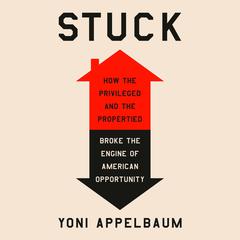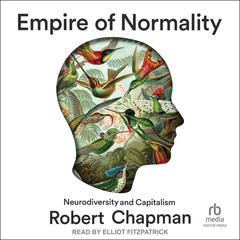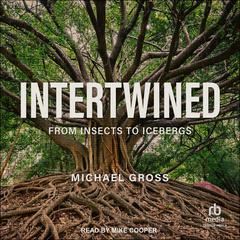 Play Audiobook Sample
Play Audiobook Sample
Bursts: The Hidden Pattern Behind Everything We Do Audiobook
 Play Audiobook Sample
Play Audiobook Sample
Quick Stats About this Audiobook
Total Audiobook Chapters:
Longest Chapter Length:
Shortest Chapter Length:
Average Chapter Length:
Audiobooks by this Author:
Publisher Description
A revolutionary new theory showing how we can predict human behavior-from a radical genius and bestselling author Can we scientifically predict our future? Scientists and pseudo scientists have been pursuing this mystery for hundreds and perhaps thousands of years. But now, astonishing new research is revealing patterns in human behavior previously thought to be purely random. Precise, orderly, predictable patterns... Albert Laszlo Barabasi, already the world's preeminent researcher on the science of networks, describes his work on this profound mystery in Bursts, a stunningly original investigation into human nature. His approach relies on the digital reality of our world, from mobile phones to the Internet and email, because it has turned society into a huge research laboratory. All those electronic trails of time stamped texts, voicemails, and internet searches add up to a previously unavailable massive data set of statistics that track our movements, our decisions, our lives. Analysis of these trails is offering deep insights into the rhythm of how we do everything. His finding? We work and fight and play in short flourishes of activity followed by next to nothing. The pattern isn't random, it's "bursty." Randomness does not rule our lives in the way scientists have assumed up until now. Illustrating this revolutionary science, Barabasi artfully weaves together the story of a 16th century burst of human activity-a bloody medieval crusade launched in his homeland, Transylvania-with the modern tale of a contemporary artist hunted by the FBI through our post 9/11 surveillance society. These narratives illustrate how predicting human behavior has long been the obsession, sometimes the duty, of those in power. Barabási's astonishingly wide range of examples from seemingly unrelated areas include how dollar bills move around the U.S., the pattern everyone follows in writing email, the spread of epidemics, and even the flight patterns of albatross. In all these phenomena a virtually identical, mathematically described bursty pattern emerges. Bursts reveals what this amazing new research is showing us about where individual spontaneity ends and predictability in human behavior begins. The way you think about your own potential to do something truly extraordinary will never be the same.
Download and start listening now!
"Bang, followed by a long pause. Bang. Sort of like our universe and life, is it not? The author has a great narrative that follows his point."
— Chris (5 out of 5 stars)
Bursts Listener Reviews
-
" Nothing we do is random. Everything is within a routine or expected area of acting. Very interesting read. "
— Joe, 1/27/2014 -
" The overall concept of this book is interesting - and the chapters that actually focus on the math and science of human predictability were very interesting and informative. However, these chapters could have been developed a lot more, easily displacing the historical thread that just didn't seem to fit. Essentially, there are two 'books' here. One is the history lesson - which if further developed could have provided a bit more foundation for those of us having no knowledge of the crusades. The second is essentially a scientific paper, but as written, without enough data to be published as such. Without focusing on either the history or the human behavior, the reader is left to try to understand what the author is getting at throughout the book - and then at the end, is left with a sense of disappointment because of the book's lack of closure/conclusions. "
— Debra, 1/21/2014 -
" A little bit of a disappointment after I've read dozens of his scientific papers; whether this would have been my feedback had I not set my expectations very high, there's no way to tell. I plan to read "Linked" next. "
— Badel, 1/20/2014 -
" This one was a disappointment for me. I found the basic idea interesting--that the daily pattern of human activity is bursty--short flourishes of activity followed by randomness because I have noticed that pattern myself but I did not learn any more about that pattern from reading this book. Barabasi uses long drawn out examples to prove his point--I lost interest in the examples and skipped to the straight science. It was almost like he was trying to be Malcolm Gladwell, pulling together disparate examples and showing how they connect only it wasn't working the way it does for Gladwell... because Brabasi doesn't really show the relevance. In particular there is a long historical example that would be interesting in a different context but which does not seem to have any relevancy to the topic. Then he started talking about how most humans are predictable in their behavior arcs with only a few outliers who are not predictable. Interesting, but he doesn't shed any light on why outliers are different. He does bring to public attention the chilling reality that pretty soon we will be completely trackable by machines, unless we as a society takes steps to stop it--but he doesn't take any kind of strong stand on this. Ultimately, the book is really light on science and didn't provide many insights. "
— Kylie, 12/31/2013 -
" Unlike most reviewers, I enjoyed this book, if only to learn about Gyorgy Szekely. Bursts doesn't do as great a job as some of the more well-polished books written by Gladwell or Dubner/Levitt, but I got the point--many things in nature, or in human nature, develop in a pattern of "bursts," rather than in a steady rhythm. Probably could have been an article. "
— Forrest, 12/14/2013 -
" It took me four months to read a book that was comprised of mostly ten-page-long chapters. Burst that, Barabasi. "
— Jamie, 12/13/2013 -
" The science is kinda cool, but 2/3 of the book is an incredibly jumbled dive into the tale of 15th century proto-revolutionary Doza Gyorgy. "
— Henry, 12/13/2013 -
" Ok, interesting idea of large chunks of our life comes in bursts with longer periods of no activity and that there is a power law function that describes the distribution. Didn't get the medieval battles in Transylanvia as good analog to the book's theme. "
— Scott, 12/13/2013 -
" Parts of this were really interesting, and Barabasi writes very clearly. But I am just not the audience for a bunch of math talk. "
— Pancha, 12/12/2013 -
" I can't get through this book. The author jumps from event to event, seemingly without any point. "
— Melanie, 11/26/2013 -
" This guy also wrote a book called Linked. Interesting Theories! "
— Chris, 9/24/2013
About Albert-László Barabási
Albert-László Barabási is a pioneer of real-world network. At 32, he was the youngest professor to be named the Emil T. Hofmann Professor of physics at the University of Notre Dame and has won numerous awards for his work, including the FEBS Anniversary Prize for Systems Biology and the John von Neumann Medal for outstanding achievements. He currently lives in Boston and is distinguished professor and director of the Center for Network Science at Northeastern University.
About Richard McGonagle
Richard McGonagle is an Earphones Award–winning narrator and an experienced film, television, and voice-over actor. He has appeared in such films as Rules of Engagement and such television shows as The Practice and JAG.
























